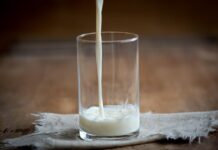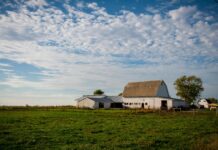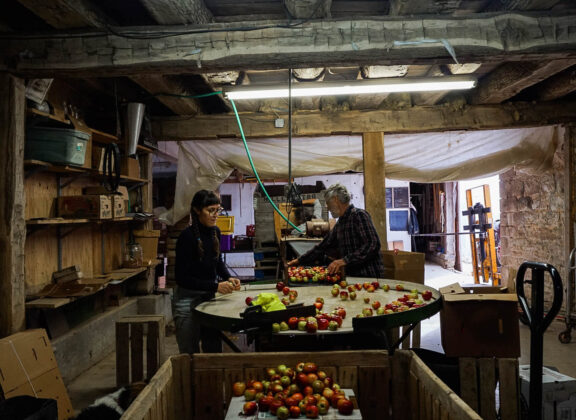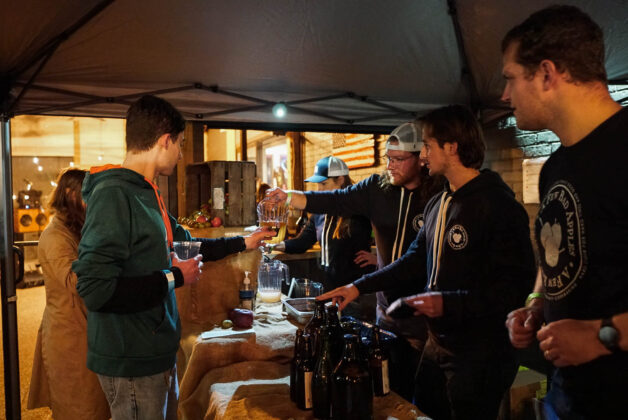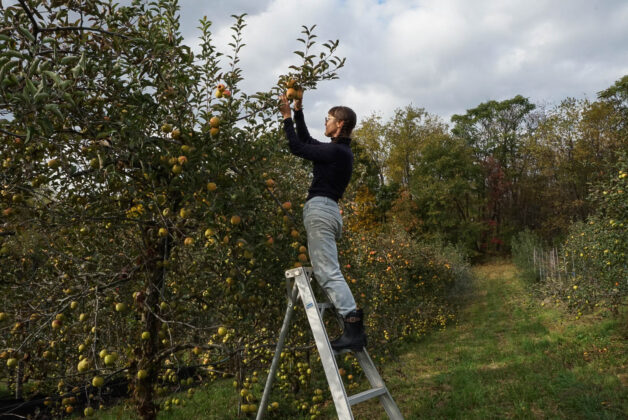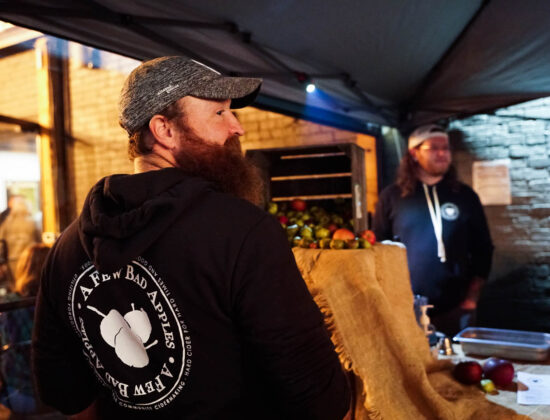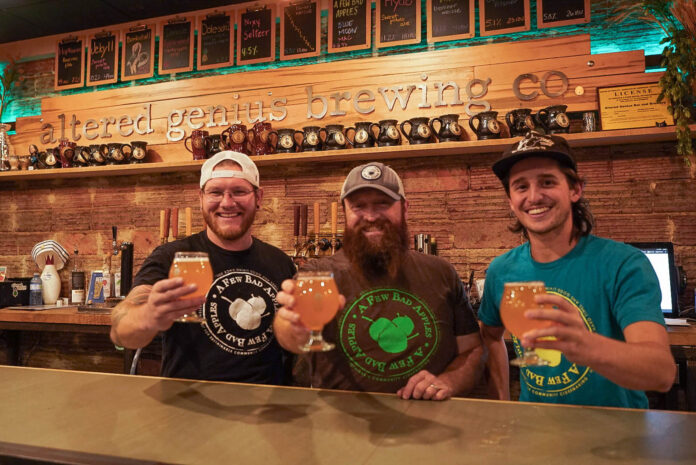
AMBRIDGE, Pa. — In 2005, Mike Sturges and a group of friends geared up in orange vests and hard hats and started collecting apples from wild apple trees off the side of the road. Using an ancient cider press from 1865, Sturges would use these wild apples to make hard cider.
Now, Sturges is being approached by others to harvest the fruit from their apple trees. But there was a time in Pennsylvania, and all over the country for that matter, when finding the fruit to make hard cider wasn’t as easy.
During the Prohibition era, cider-producing apple trees across the country were cut down or burned to the ground in an effort to wipe out hard cider production.
In today’s age, cider makers like Sturges are coming up with creative, sustainable ways to bring back the hard cider industry to the states once again — and small-scale cideries in particular are leading the charge.
A Few Bad Apples
Since the beginning, Sturges has sought to use what he calls “forgotten fruit” for his hard cider, otherwise considered fruit that most people do not have the time to pick, harvest and utilize, or are physically incapable of doing so anymore.
Sturges and his crew at A Few Bad Apples take care of properties all over western Pennsylvania, primarily former orchards that people can no longer maintain.
He talks about one orchard in particular in Butler County, Pennsylvania that has roughly 200 to 300 trees. No longer able to manage the trees anymore, the son of the farmer approached Sturges back in 2019 asking if he could take care of them and harvest the fruit.
“The reality is when you get in your 80s, you can’t really climb up trees,” Sturges said. “You have this family farm that’s been going on since the 70s, this guy put his heart and soul into this orchard, and he says when we come to take care of his (trees) that we’re an answered prayer.”
So far this year, Sturges has pressed over 20,000 pounds of fruit and has made over 1,000 gallons of hard cider from his orchards. It’s been a banner year compared to others.
Last year, Sturges’ orchards got hit with a late May frost and they were only able to harvest 400 pounds of apples. Like most agricultural producers who rely on the goodwill of Mother Nature, Sturges has had his fair share of problems when it comes to unpredictable weather.
Despite this, he and his crew persist, always looking to make the next best hard cider. One of their newest hard ciders is called Blue Moon Mac, named after Mcintosh apples that were picked underneath the blue moon in early September. All of Sturges’s hard ciders come from unsprayed, pesticide-free fruit and contain no sulfites.
Sturges makes a wide array of hard ciders including rose ciders made from various fruits like grapes, raspberries and cherries. He also specializes in making hard ciders from tea, one of their most popular ciders being the Victorian Earl Grey cider made by steeping fruit juice with Earl Grey tea and mixing in homegrown lavender and rosemary.
After the Fall
Maria Kretschmann, owner of After the Fall Cider and second-generation orchardist, launched her business in 2019.
However, the orchard was there long before she took operations over. Its story begins in the 1970s when Kretschmann’s parents, Don and Becky Kretschmann, bought a farm in Rochester, Pennsylvania to grow organic vegetables.
After nearly a decade of growing vegetables, they planted a hillside orchard on their farm in the 1980s. A few years later, they were able to reap the fruits of their labor and harvest apples to make fresh apple cider.
Happy with their product, they planted another block of apple trees in 1996 and again in 2006. Now, After the Fall Cider orchards encompass about 80 acres with a variety of different apple trees.
Kretschmann initially started making apple cider as a hobby, but after attending an Organic Apple Growers meet-up in western Massachusetts, cidermakers at the event inspired her to get more involved.
“When I moved back here, I was just drawn to the orchard. It was the place I wanted to be,” Kretschmann said.
Since opening, she has expanded her business from selling apples and various hard ciders to making all sorts of apple products including sweet cider, applesauce and an assortment of apple cider vinegars.
“I launched right before COVID, and I was sort of feeling like I wanted to put something out in the world that was not alcohol, that was good for people, “ Kretschmann said.
In more recent years, Kretschmann has focused on producing a wide array of apple cider vinegars, infusing them with various herbs from her garden that she hopes to one day make into salad dressings.
When it comes to tending the orchard, she adopted practices from her parents who were organic “before it was even a word people knew.”
Kretschmann doesn’t spray her orchards and instead uses biological fungicides. She has rotating cover crops to boost soil health and uses the lake on the farm as an irrigation system. With her cider, she is low-intervention, not adding any fining agents and not filtering the cider, but letting it clear naturally.
Kretschmann’s secret to great cider and apple products is what she calls the fruit-first approach.
“In my opinion, good cider starts with good fruit, and I kinda grow the best fruit.” Kretschmann jokes. “When people ask me, what do I do to my cider to make it so good, or what’s my process… I just (say) I let the fruit come first.”
Kretschmann will soon be launching the After the Fall cider club this upcoming new year. Members will receive two to four exclusive and specially crafted hard ciders delivered to their doorstep each season.
Paying homage to the past
Part of hard cider’s future will rely on recognizing the history of Pennsylvania’s cider industry and attempting to reinvent what has been lost — something which Sturges is already working on.
He recently started a new collaboration with Old Economy Village, a historical site in Ambridge, Pennsylvania, to bring back a historic cider created by the Harmony Society.
The village was known for making a cider with Hewe crab apples that was first made available to the public in 1817. Like many cider trees, however, Hewe crab apples faced the wrath of the prohibition slaughter.
To reintroduce a similar version to Pennsylvanians once again, Sturges worked with another cidery to create a historic “common cider” from various fruits and apple varieties. He anticipates the cider will be ready for next year and hopes it will create some awareness surrounding the history of cider in Pennsylvania pre-prohibition.
Sturges and his crew all have day jobs and do not get paid for the work they put in at A Few Bad Apples. Nevertheless, it is passion that keeps them going.
“The benefits for what we’re doing is being able make something that’s really amazing and just marvel at it. Being able to touch people by taking care of their properties and help them to keep their properties viable over time,” Sturges said. “To be able to give somebody a glass of cider, that doesn’t have pesticides or sulfites in it, and they’re just like ‘this is exactly what I was looking for.’”
Interested parties can find A Few Bad Apples cider at Altered Genius Brewing Co. and APTEKA restaurant; And can find After the Fall Cider at the North Side Farmers Market, the Squirrel Hill Famers Market, Mediterra Cafe and, of course, at the After the Fall Cider orchard located at 257 Zeigler Rd, Rochester, Pennsylvania.
For more information on A Few Bad Apples, visit https://www.facebook.com/afewbadapplescider/ or https://www.instagram.com/afewbadapplescider/, and for After the Fall, visit https://www.afterthefallcider.com/.
(Reporter Liz Partsch can be reached at epartsch@farmanddairy.com or 330-337-3419.)


